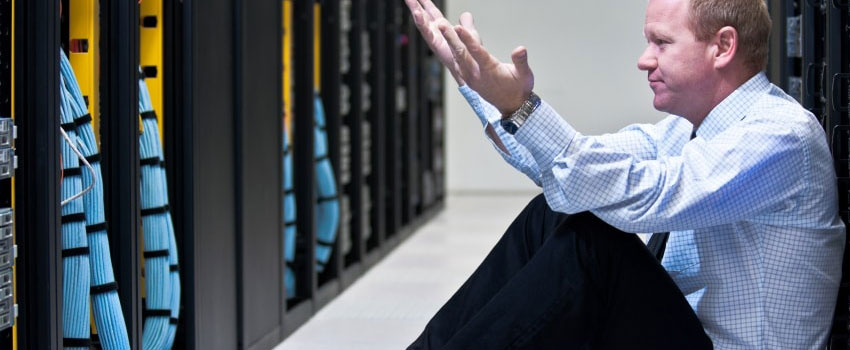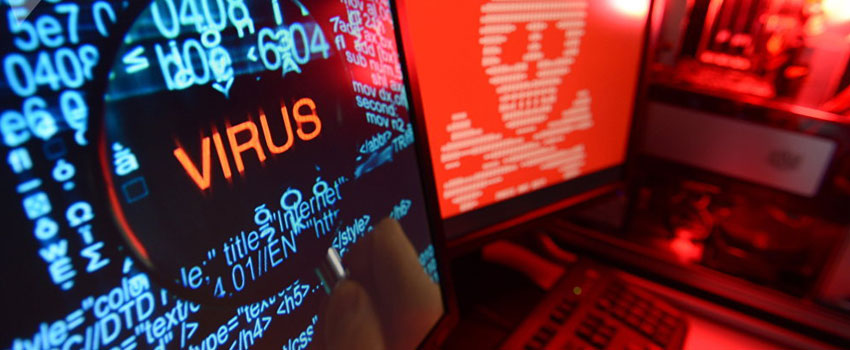Major Causes of Data Loss
The data you keep on your digital devices presents an immense need to be protected. This is because of the value it holds, even if its owner does not realize it. Business data especially presents a challenge when we talk about safety and data storage protection. In case this data is lost, the company can suffer long term financial damage.
A number of scenarios can cause your precious data to be lost. If the proper strategy is not adopted to avoid this shortfall, you might permanently lose your data in some unexpected circumstances. Here, we’ll see some common causes of data loss. Later on, we’ll also get into how users can plan ahead to avoid losing data.
Hardware Failures
Hardware failures can encompass a wide range of possible scenarios in itself. This is due to the fact that modern computer systems contain a number of hardware devices. All of these devices work in sync to run your computer. If any one of them stops working, the user faces an issue in properly using their computer. But, a failure of some hardware devices can spell trouble in terms of data loss.
The primary hardware component holding your data is the hard drive. If the hard drive stops working, the data stored on it can easily be corrupted. Failure of a hard disk is very common, as these components can be very fragile. The modern hard disk tries to fit a number of mechanisms in a very compact space to increase portability. This is why even the slightest external force can cause an issue through physical damage.
Other hardware components excluding the hard drive do not directly cause a loss of data. But in a working computer, any damage can reach the hard drive as well. For instance, if any liquid is accidentally poured on the computer, it can affect the hard drive as well.
Any form of damage to a working computer system can potentially cause a loss of data. This happens when the data is not backed up somewhere else. The damage can reach the hard drive and can also cause a computer system to stop operating.
Human Errors
Human error is possibly the most common scenario that causes a loss of data. Just like hard drive failure, human error can encompass a wide range of scenarios. The most common case of human error is when data is accidentally deleted. Another case is when the user shuts the computer system off before actually saving the data.
Another common cause of data loss in terms of human error is overwriting existing data. When this happens, recovering the previous data is often a challenge. Especially for businesses, employees can accidentally cause an actual financial loss in this manner. Since companies are known to keep valuable data on computer systems, human error can cause long term potential damage.
Other cases include accidentally causing physical damage, especially to the hard drive. For example, accidentally dropping CPU or slipping a coffee or tea on a computer system can result in its damage and chances are there that the hard drive can also get affected.
Software Corruption
Most data stored on computer systems are linked to software that help generate this data. A failure of such software to work properly causes a loss of access to this data. If the user has no other way to access this data, a possible case of data loss can occur.
Most software can even become a cause of data corruption. One of the causes of data loss through software malfunctioning is due to the use of diagnostic tools. In case a software crashes, it usually comes with an option to run a diagnostic check. Users should be careful before running the diagnostic tool as it can corrupt any internal data linked with the software or even remove it. This is why the diagnostic tools of any kind should be used with caution if the data is not preserved somewhere else.
Computer Viruses and Malware
Your computer system can be vulnerable to a wide range of virus and malware attacks. While the internet has facilitated users in a number of ways, it has also presented users with a new kind of threat. Such a form of risk to computer viruses and malware can cause serious data loss.
The virus or malware can easily corrupt data in your system if left unnoticed. The risk associated with a virus or malware is far higher than just a simple data loss. Valuable data stored on your computer such as financial information or employee data can be stolen. If you no longer have access to this data and it has been corrupted by the virus, recovery can be impossible.
Natural Disasters and other External Events
A number of unexpected external events can also cause the data on your computer to be lost. These events can be hard to point down before they happen. But, a number of common scenarios exist. Such natural causes can sometimes even be uncontrollable.
Events such as power failures, fire, earthquake, and flood are some of the uncontrollable natural and external events. Users cannot control these and to avoid the data loss, the data should have to be backed up in advance. Offsite management options such as cloud storage or cloud backups can present a viable option to counter such external events.
Always have a Backup Plan in place
Planning ahead is always helpful. To avoid any data loss, a data backup can be extremely helpful. This helps use the resources at your disposal to the best of your abilities. A number of methods exist to keep your important data backed up.
There are different backup options available, such as external hard disk drives, flash drives, cloud storage, clones and other similar ways. The option you choose should match your own personal requirements. But each one can prove to be helpful in keeping your data safe. In case the original files are lost, the backup helps to restore the copy of it.





